For 23-year-old Olivia, the battle was sudden and short. She’d felt very unwell and her GP had directed her to A&E in her local hospital, where she was unable to stop vomiting, her blood sugar was extremely low, and she was very disorientated and confused.
Blood tests the following morning confirmed that she was in acute liver failure. She was transferred to the intensive care unit as her condition worsened over the next 24 hours and the doctors decided to put her into an induced coma.
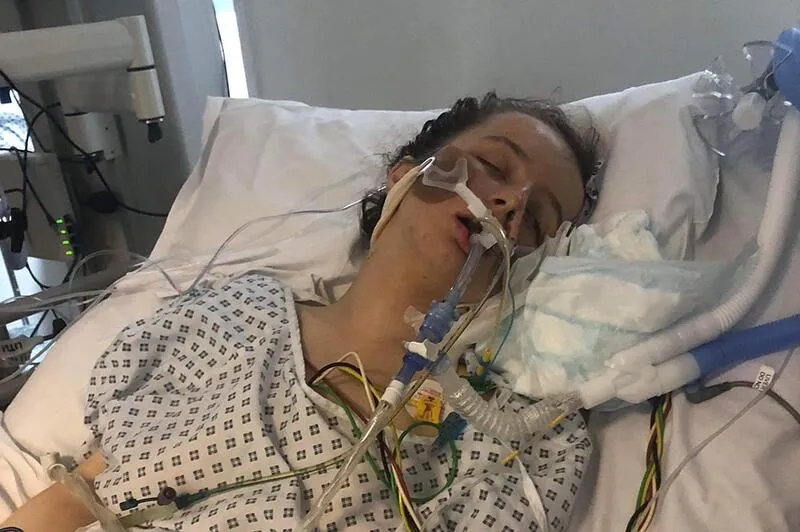
The decision was made to transfer Olivia 220 miles across the country to King’s College Hospital. Olivia was kept in a coma for nine days to protect her brain function while she received expert care from King’s world-leading liver team. During that time, her parents were particularly touched by the kindness and care shown by the nurses.
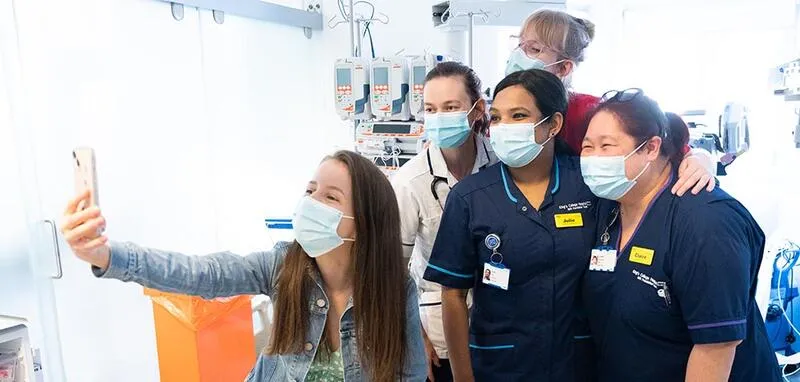
Thankfully, Olivia never required a liver transplant – her treatment was successful and her liver began to repair itself. A few days after she was brought out of the coma, she was transferred to the high dependency unit for a short stay. And, after about a week on the general liver ward, Olivia was well enough to be discharged home.
Today Olivia’s liver functions completely normally to the point where there is no evidence of her previous liver injury. Their story is still unfolding, however. Olivia’s father, Simon, was so moved by their experience of hospital care and treatment that he has already donated a kidney to a stranger and begun the extensive process of becoming a liver donor himself, hoping to give someone else the life-saving gift that Olivia so nearly needed.
For six-year-old George Baker, the battle has been long and complicated.
It began when he was diagnosed with a very rare cancer called Langerhans Cell Histiocytosis (LCH). At the age of just two and a half, George underwent a year of chemotherapy. Unfortunately, less than a week after being given the all-clear, the disease returned.

His liver had been severely damaged and it was unlikely he would be able to withstand the further aggressive chemotherapy that was required.
Determined to explore every available avenue, the Bakers found a treatment available in the USA, which brought George off chemo and started him on an inhibitor to control the LCH. However, shortly after they returned to England, George’s liver began to deteriorate even further.
It became clear that a liver transplant at King’s College Hospital was going to be the last chance to save him.
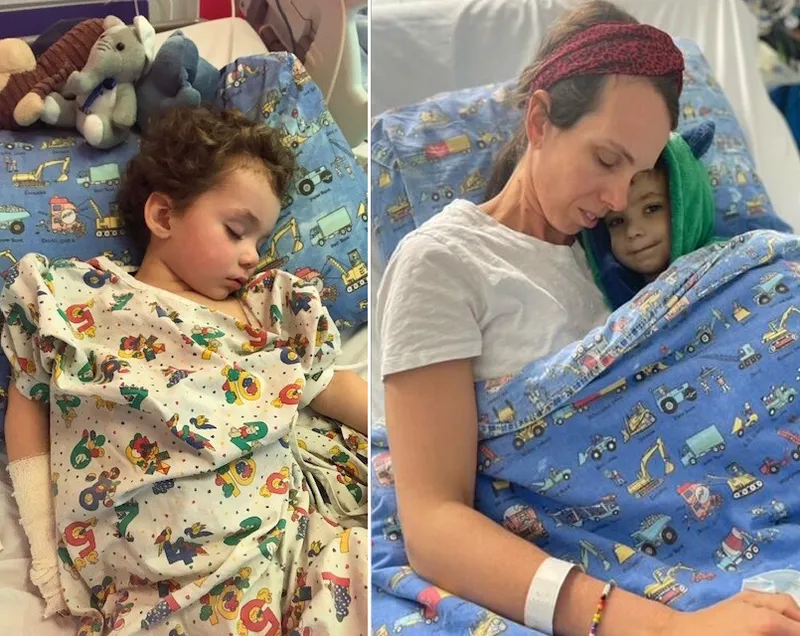
After extensive testing, Catherine was approved to be George’s liver donor. Within 24 hours of a successful transplant operation, George was out of the intensive care unit and breathing on his own. His improvement was almost unbelievable – within 10 days he was trying to kick a football down the corridors and was able to walk up and down the stairs within the hospital.
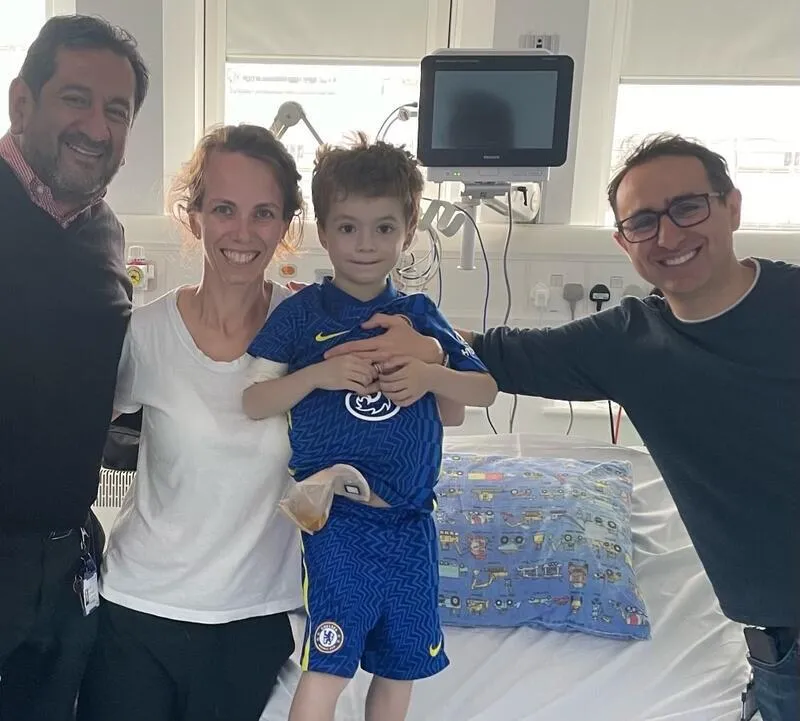
After spending a total of four weeks on Rays of Sunshine ward recovering from his procedure, George is now back at school, making up for lost time by enjoying every opportunity to play football, tennis, golf and any other activity he missed out on during his illness.
The Hike, which takes places on 16 September, winds its way through parks and woodland in South East London, in support of King’s College Hospital Charity.
The charity hopes that more than 500 hospital staff, patients, volunteers, friends and family members will hike together to raise £100,000 to take care further at King’s. Funds raised go towards vital work such as pioneering liver research, development of play facilities for children, and enhanced support and spaces for parents with seriously ill children staying in hospital.
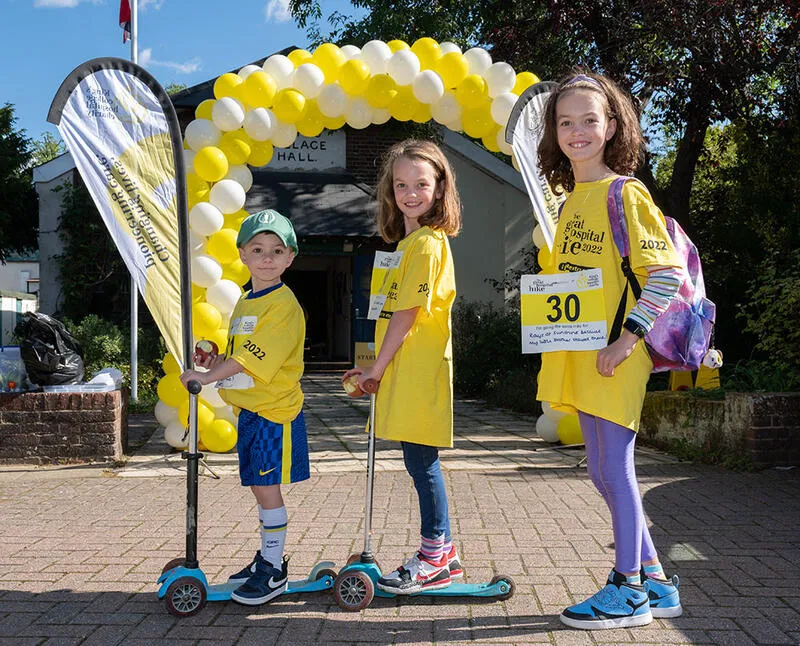
Olivia will be leading the 18-mile Great Hospital Hike setting off from King’s College Hospital, while George will be leading the Little Hospital Hike which joins the route for the home stretch to the Princess Royal University Hospital.
To join Olivia and George on the start line for the Hospital Hike on 16 September, visit supportkings.org.uk/hike. It costs £15 to register, with each participant committing to raise at least £150 in support of King’s College Hospital Charity.
